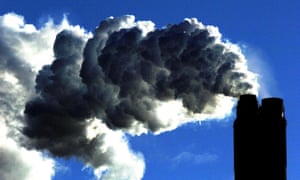The group of 414 institutional investors with $31 trillion under
management say governments must take serious steps to cut emissions
The largest ever group of institutional investors has called on
governments around the world to urgently increase their efforts to meet
the Paris climate change agreement goals.
The 414 global investors - which represent US$31 trillion of assets-under-management - say they are deeply concerned about the “ambition gap” that exists between governments’ commitments and what is needed to limit the global temperature increase to well below 2C above pre-industrial levels.
They say that gap is increasing the physical risks from climate change and hampering investors’ ability to properly allocate trillions of dollars needed to support the much-needed transition to a low carbon economy.
They have signed a “Global Investor Statement” to be handed to world leaders this week at the COP24 - the 24th Conference of the Parties to the United Nations Framework Convention on Climate Change in Poland.
The signatories include some of the world’s largest pension funds, asset managers and insurance companies, including Australian investors BT Financial Group, Australian Super, Cbus, HESTA, IFM Investors, Local Government Super, and VicSuper.
It is the single largest intervention from investors on climate change, surpassing even the one issued in Paris.
The investor statement includes recommendations for governments on the specific steps the investors believe are needed to support a low carbon transition.
Among specific policies, they request governments “phase out thermal coal power”, “put a meaningful price on carbon” and “phase out fossil fuel subsidies.”
The three major areas for government action are:
Chris Newton, the executive director of responsible investment, IFM Investors, which has $81bn in assets under management, says the long-term nature of the problem of climate change has met with a “zombie-like response” from policymakers.
“This is a recipe for disaster as the impacts of climate change can be sudden, severe and catastrophic,” he said.
“We need our infrastructure assets to continue to provide essential services to communities and economies around the world. We have a duty to our investors to act for the long term when others are clearly sidestepping the challenge”.
The global investment manager Schroders, a signatory to the statement, warned recently that current global policies implied long-run temperature rises of around 4°C, with $23 trillion of associated global economic losses over the next 80 years – representing permanent economic damage three or four times the scale of the impacts of the 2008 global financial crisis.
The investors are also calling for the phase out of coal power worldwide.
They have welcomed growing support for the global “Powering Past Coal Alliance,” which was launched by the UK and Canada, and which now has 28 national government signatories, alongside other sub-national and corporate supporters.
Australia is not a signatory to the alliance, but the Australian Capital Territory government is.
The 414 global investors - which represent US$31 trillion of assets-under-management - say they are deeply concerned about the “ambition gap” that exists between governments’ commitments and what is needed to limit the global temperature increase to well below 2C above pre-industrial levels.
They say that gap is increasing the physical risks from climate change and hampering investors’ ability to properly allocate trillions of dollars needed to support the much-needed transition to a low carbon economy.
They have signed a “Global Investor Statement” to be handed to world leaders this week at the COP24 - the 24th Conference of the Parties to the United Nations Framework Convention on Climate Change in Poland.
The signatories include some of the world’s largest pension funds, asset managers and insurance companies, including Australian investors BT Financial Group, Australian Super, Cbus, HESTA, IFM Investors, Local Government Super, and VicSuper.
It is the single largest intervention from investors on climate change, surpassing even the one issued in Paris.
The investor statement includes recommendations for governments on the specific steps the investors believe are needed to support a low carbon transition.
Among specific policies, they request governments “phase out thermal coal power”, “put a meaningful price on carbon” and “phase out fossil fuel subsidies.”
The three major areas for government action are:
- Achieve the Paris Agreement’s goals – update nationally-determined contributions to meet the goals of the Paris Agreement, to complete the process no later than 2020
- Accelerate private sector investment into the low carbon transition – put a meaningful price on carbon, phase out fossil fuel subsidies by set deadlines, and phase out thermal coal power worldwide by set deadline.
- Commit to improve climate-related financial reporting
Chris Newton, the executive director of responsible investment, IFM Investors, which has $81bn in assets under management, says the long-term nature of the problem of climate change has met with a “zombie-like response” from policymakers.
“This is a recipe for disaster as the impacts of climate change can be sudden, severe and catastrophic,” he said.
“We need our infrastructure assets to continue to provide essential services to communities and economies around the world. We have a duty to our investors to act for the long term when others are clearly sidestepping the challenge”.
The global investment manager Schroders, a signatory to the statement, warned recently that current global policies implied long-run temperature rises of around 4°C, with $23 trillion of associated global economic losses over the next 80 years – representing permanent economic damage three or four times the scale of the impacts of the 2008 global financial crisis.
The investors are also calling for the phase out of coal power worldwide.
They have welcomed growing support for the global “Powering Past Coal Alliance,” which was launched by the UK and Canada, and which now has 28 national government signatories, alongside other sub-national and corporate supporters.
Australia is not a signatory to the alliance, but the Australian Capital Territory government is.

No comments:
Post a Comment